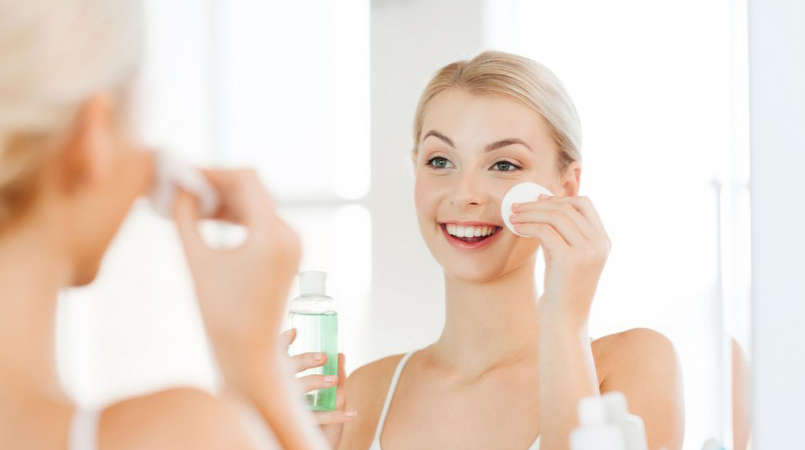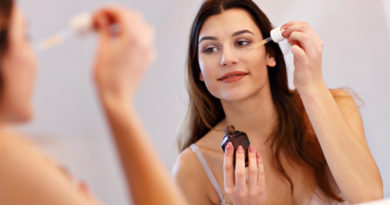Beauty Tips for Sensitive Skin
Sensitive skin is very challenging to take care of because it is prone to a lot of issues. Some sensitive skin characteristics include recurring red spots or rashes, vulnerability to sunburns and tanning, tightness of the skin, especially after washing, and adverse reactions to cosmetics and other products. The fashion and cosmetic industry spend billions of dollars annually creating products for sensitive skin. In addition to the products, below is a guide to some beauty tips for taking care of sensitive skin;

1. Be keen on the product you are using
If you are one with sensitive skin, an essential thing you ought to do is be careful of the products that you introduce to your skin. When buying beauty products and other skincare products, make sure you check on the ingredients present in the product. Using harsh products on your skin could cause issues like irritation. To avoid these issues, make sure to do a skin test on all your products before using them entirely. When testing a product, start by putting a small amount on your skin (not your face) and let it stay for around 48 hours and watch how your skin reacts to it. Do the same with all kinds of products that you use on your skin, including cleansers.
You may also want to go the extra mile and choose cruelty free products. Sond skin recommends organic skincare products. Organic skincare products have the least adverse effects on the skin because they do not contain chemicals that are harmful to the skin.
2. Keep your skin moisturised.
The greatest danger to sensitive skin is dryness. Dry skin is prone to issues like irritation and acne. Therefore, moisturising is an integral part of skincare for sensitive skin. You can use moisturising creams designed for sensitive skin. You can also opt for a natural moisturiser as suggested by sond sensitive skincare guide. A natural moisturiser can either be a cream or a specific diet. Moisturising is especially important for people who suffer from conditions like eczema.
3. Consider your diet
Your diet significantly affects the health of your skin. Eating healthy foods and staying away from GMOs. can help flush out toxins from your skin. Taking a lot of water can also help keep your skin adequately hydrated. You also ought to stay away from foods that cause adverse reactions with your skin. According to Sond skin, vegan and vegetarian diets are beneficial to the health of your skin. If you practice vegan or vegetarian diets, you may also want to go the extra mile and try cruelty free foods and stay away from GMOs.
4. Avoid the sun and wash your face.
Harmful UV rays from the sun have numerous adverse effects on the skin. The UV rays tend to damage the skin cells and cause rashes and other conditions. It will help if you avoid direct sunlight as much as possible. However, if you cannot do that, you can prevent the harmful sun rays by wearing sunscreen lotions containing a high SPF value.
Additionally, you ought to wash your face as often as you can. While this is important, you also want to avoid using harsh facial cleaning products because they cause more harm than good. Washing your face with water only will help to hydrate your skin and take out the impurities that clog your pores hence causing conditions like acne and eczema. Remember not to rub your skin when drying it. Instead, pat on it gently. Additionally, instead of using harsh towels, you can opt for facial wipes that are gentle on your skin.
5. Avoid touching your face.
Touching your face introduces it to bacteria, which cause breakouts. Touching the skin also aggravates existing conditions like pimples because of the bacteria and foreign bodies introduced from your hand and environment. If you have to scratch your face, use a cotton or a soft piece of cloth.
6. Exercise
Exercise is very beneficial for sensitive skin. It helps to reduce the excessive production of sebum, which causes breakouts like acne and pimples on the skin. Exercising also promotes excreting through sweat, which helps to flush out toxins from the skin. You can embark on any form of exercise for the benefit of your skin.
7. Be wary of external factors.
Several external factors affect the health of your skin. Such factors include practices like smoking, not getting enough sleep, and pollution. Stress also tends to have adverse effects on the skin as it causes flare-ups of rashes and other significant skin conditions. Therefore, you have to stay away from these external factors as much as you can.
Conclusion Taking care of sensitive skin does not have to be challenging. In addition to the tips provided above, you can also take care of your sensitive skin by using minimal products. The essential products you need is a cleanser, moisturiser like in sond sensitive skin guide, and sunscreen. This means that you can do without other fashion and cosmetic products, especially if they have adverse effects on your skin.



